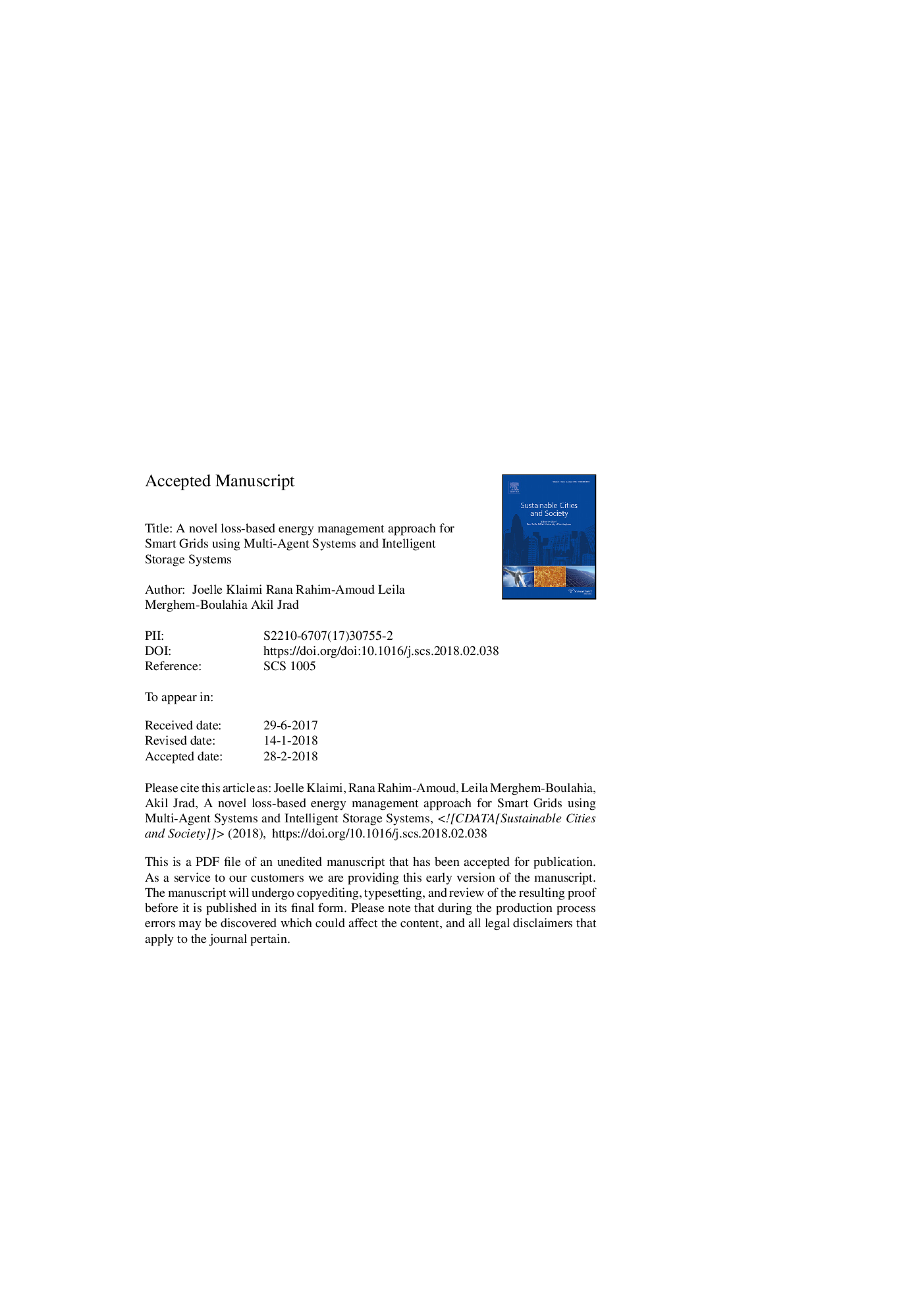| Article ID | Journal | Published Year | Pages | File Type |
|---|---|---|---|---|
| 6775255 | Sustainable Cities and Society | 2018 | 30 Pages |
Abstract
The smart grid integrates the use of information and Communication Technologies (ICTs) in order to ensure the interaction between its computational and physical elements. Moreover, it supports bidirectional information flows between the energy users and the utility grid that motivate energy users not simply to consume but also to generate energy and to share it with the utility grid and/or with other consumers. Many researches have addressed the problem of energy management in the smart grid context and have been done in order to offer maximum savings on energy bills as efficiently as possible. However, many algorithms presented in the literature do not exploit storage systems and/or present high energy losses. Taking into consideration energy losses, this research discusses the effects of these losses on consumers' bill. Hence, we propose an agent-based solution that takes into consideration users' loss minimization in the smart grid context. The contribution of this paper is twofold. Firstly, it highlights the effects of power loss on the energy cost in an electrical system. Secondly, a novel approach aiming to help the storage system meet consumers' daily demands will be presented. Simulation results show that our proposal minimizes consumers' energy costs and losses.
Related Topics
Physical Sciences and Engineering
Energy
Renewable Energy, Sustainability and the Environment
Authors
Joelle Klaimi, Rana Rahim-Amoud, Leila Merghem-Boulahia, Akil Jrad,
